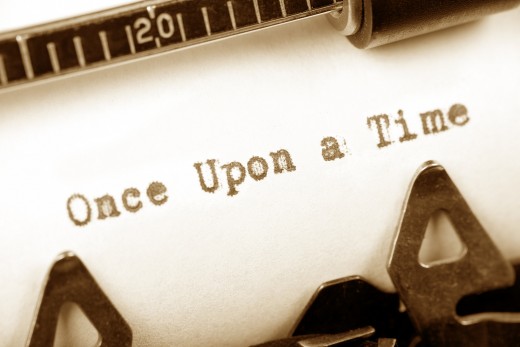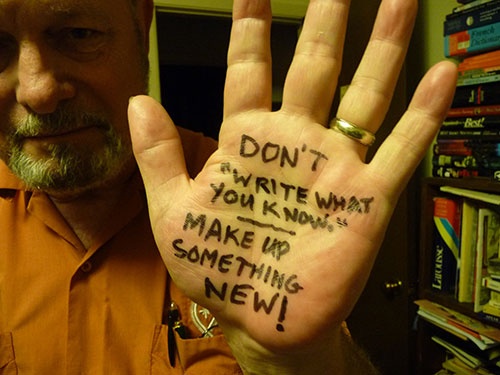9 negative attitudes about writing that need to STOP!

When I was a kid, people around me found endearing that I wanted to be a writer when I grew up. They probably thought that as children often do, I would rather be something else in no time. Eleven years later, here I am pursuing a career in writing and loving every minute of it. While pursuing this career I have met a bunch of other individuals with similar back stories to mine and, or at least the same aspiration. I have found writer friends from whom I've learned a lot of what to do and what not to do.
The best part of having friends that also write is that we can share experiences, recommend books to each other, offer feedback once in a while, and even push each other to finish whatever project we are working on. However, in all the late night conversations that I have with writer friends, with the relaxed ambiance, the empty glasses, and the cigarette smoke still floating above us, certain themes always come around. What happens when you tell people you are a writer? What happened when you first decided to start a career in writing?
We all have our different reasons to write, but somehow we all face the same situations. Sometimes when we talk about writing to our families, friends, strangers, and even teachers or more experienced writers than ourselves, we encounter some odd behaviors, attitudes, or advice.
Inspired on this, bellow you will find a list of the 9 attitudes towards writing that seem to repeat themselves among writers. Some of these behaviors are performed by non-writers, our mentors and veteran writers, and even us the people that write.

1. A writer?
We start with a demeanor that non-writers approach the subject of our occupation. This one is a conduct exhibit by some people give you when you explain what you do, or plan to do, for a living. Non-writers ask this question with a certain pitch in their voice, what I would call a tone of disbelief. They also make this face, as if you have told them you like to eat the inside of lemons and want them to try it. It's either that or giving you a sort of condescending-sad-tilt with their heads, that is followed by a “Well, at least you like it, right?” or something to that effect. Many individuals treat writing as a profession made for and by starving artists (just like they would treat any other type of art). These individuals don't realize the many things you can do with a writing career. From technical writers to script writers, to copy editing, and even literary agents a writing career is a job to be taken seriously and is as good as any other job.
2. Everyone can write
Yes, this is true my friends. Everyone can write a letter, a text, an email. But a book, short story, script, poem, essay, article...? No, not everyone is made to write. Writing is a very difficult profession. It requires time, patience, more time, practice, be able to handle stress, rejection, deadlines, and overall, it is consuming. You got to love what you do when it comes to writing. Of course writing is not the only difficult profession out there, but just like many people can't be a doctor or a firefighter, not everyone can write.
There are many people that can write, but there is a difference between writing and writing well. There is a lot of authors in the world, but the ones that can write well are less than half of them. As I said before, writing requires practice and time, that many people and even fellow authors, don't want to spend in front of a blank page or a glowing monitor.
3. Must be nice to get as much free time as you do
HA! Free time? It is sad to admit, but writers don't have much of that. Whenever this statement comes in a conversation, it reminds me of something I read in The Writer's Digest:“Ask a writer when was the last time he had a vacation, and he'll laugh in your face”. One way or another we're always working, especially because our whole income comes from us finishing whatever we are writing. Let's face it, those articles won't write by themselves. “But how can you not have free time if you always travel, or are out for lunch, or are in your home all day long?” non-writers may ask. Well, you see, writers have conferences, writing retreats, workshops, business lunches just like many other people in different fields do. The point is, writers are always working or feeling guilty because they know they should be writing.

4. You're in a dead business, no one reads anymore.
Sadly, non-writers say this. Out there in the cruel, cold world there are some individuals that believe reading is not something people do. They think holding a book and reading through its pages is something of the past. This probably happens because these non-readers haven't held a book in their hands in a long time, or even worse, they have not held a book in their whole lives. This statement is the biggest lie ever. Everybody reads every day while wasting time on Facebook, texting, or while driving and looking at the signs on the street. Reading is something we do all day long. It is only natural that reading books, poems, articles and other materials is something that people still do.
Something truthful of this statement is that people don't read as they used to. With so much technology around book, reading is an activity that has been innovated. With Kindle, Nook and the Ipad around we can store hundreds of books in a single device. We can buy, store, highlight, and take notes with the tap of a finger. This make book reading easier than it already is! This will only increase the numbers of readers out there. Book reading is an activity that has survived for centuries and looks like it's here to stay. So, not to worry people, we have a functioning, breathing, fighting business that is still kicking and growing stronger.
5. When are you going to write something for adults?
This one also manifests as: “When are you going to write something more realistic?” I don't know about you, but I feel like this attitude undermines the work of writers that work with children's books, middle-grade, young adult, and virtually any writer that works with Fiction. Books that deal with fictional stories are as good as real life stories, but yet, some non-writers undermine fictional works.
This attitude is usually accompanied by comments like “You're a pretty good writer, you should be writing (fill in with realistic, or adult content)”. Some authors will jump to Nonfiction or adult content after writing the complete opposite for a very long time. Take J.K. Rowling as an example, she went from Harry Potter to The Casual Vacancy. She moved away from her genre (and she was criticized for it, but that's a topic for another day). However, not every author wants to write anything for adults or something realistic. Fiction and literature for the young are not to be treated lightly, or undermined. These genres are as important as any other piece of literature.
The only worse thing that receiving this attitude from non-writers is receiving odd advice from other writers. At this point, we will discuss the behaviors and negative input that we receive from mentors or veteran writers.
6. Oh, so you want to be a writer, eh?
Usually when a person starts working towards a career in the world of writing, they receive a lot of love and support from their peers, teachers and mentors. However, along the way, there is always someone that seems to hate being a writer, or simply someone that likes to be negative, or scare newcomers. This is the Boogeyman of Writing. I'm sure that we all have, or will, encountered the Boogeyman of Writing in our writing careers. This is the person that approaches you at writers conferences, finds out you are a newbie and starts telling you all the downsides of the career. The Boogeyman of Writing starts saying that being a writer isn't easy. Suddenly you find yourself in a conversation about the hardships of writing, how little you could get paid and how much you could get paid “but let's face it, not everyone is R.R. Martin”, and the much feared writer's block.
Granted, writing might be a hard career, but there's no need for all the negativity. Till this day, I don't understand the why of the Boogeyman's existence.
7. Write about what's popular
Many fellow writers believe that is important to write about what is “trendy”. So if Vampires or Zombies are popular, you should write about that, right? Wrong! The fact that something is popular doesn't mean is good or that you'll sell lots of books. In fact, if you arrive a bit late to the popular-book-fest, you might not sell as much as you imagined and you would've wasted a lot of time in something popular instead of something that you like. Books that follow trends die with them. Popular things are easily forgotten, because something even newer is waiting around the corner. You should write about what you like, and write it well. When you write about something you love, there are more chances that your work becomes timeless and successful.
8. Write about what you know
Argh, this one... This is probably the most common one among writers. I have heard this one so many times. Either I hear this one from experiences that other writers have shared with me or I hear it as advice. This is definitely not the worst, but it's one of the very bad attitudes and teachings that writers give to each other. The reason for this is that this statement sounds like a great advice. You should write about what you know because this will allow you to do better descriptions and to perhaps get your message across better since you know what you are talking about. This sounds very useful, but it isn't. What better way to limit a writer than this? This attitude limits the writer to what he or she already knows. Where's the sense of exploration, adventure, discovery? The best part of studying writing is that you grow with your craft. You learn from it. You discover new things about yourself and those around you. But, how will you do that if you stick to what you already know? You need to step out of your comfort zone, out of your culture, your gender, your religion, your lifestyle. Quoting Joe Haldeman, author of The Forever War, I got to say: “Don't write about what you know. Dare to make up something new!”.

9. "I don't talk about my writing because...”
Finally, we have come to the last item of this list. The very worst attitude there is out there towards writing. Sadly, this atrocity is commonly made by us, the writers all around. “I don't talk about my writing, because whatever”. Usually, we don't talk about our work because of all of the previous reasons. We don't say we are writers because others don't understand it because we “know” what people are going to say, or we “know” we will get criticized. If we are not comfortable talking about writing, then perhaps we shouldn't be doing it. How will you get your work out there if you don't even want to talk about it?
Reflexion
There you have it, the 9 negative attitudes towards writing that keep repeating themselves. The situations in this list need to be stopped. I believe that the first thing to change is the last attitude, the one performed by us, the writers. There is no valid reason to NOT talk about your writing. Remember that this is not an easy job, so be proud to be and bear the title of Writer. After we change ourselves then we got to get rid of bad advice we give to each other. There is no really way to stop bad advises because they will always be new tips that might be good or bad. However, what we can do is learn to distinguish what works for us and decide which form of input is good and which one isn't. Finally, we need to change how non-writers perceive our careers. Take the criticism to improve, fight the negative commentaries, educate people (especially if you ever encounter a non-reader).
Now, let me learn from you. What are some of the odd, negative, or even annoying attitudes that you have encountered in your writing careers?








